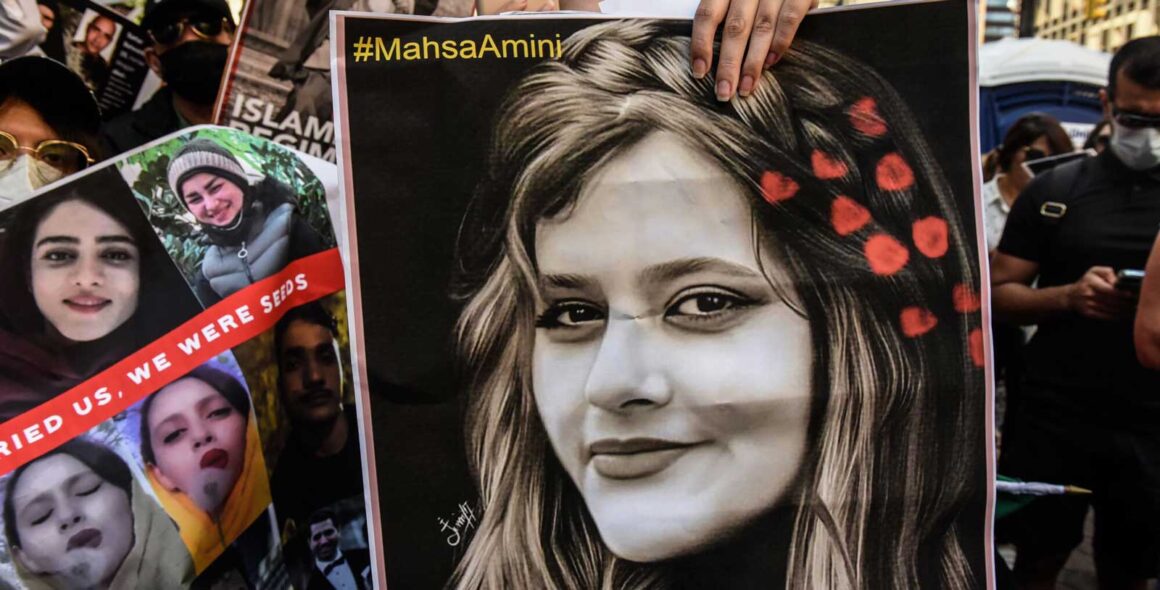

By Tim Nailsea
IN THE wake of the massive repression which has, for the time being at least, suppressed the mass protest movement, following the murder of Mahsa Amini by Iran’s ‘morality police’. The UK and the European Union are taking measures to designate the Islamic Revolutionary Guards Corps (IRGC) a ‘terrorist organisation’. The IRGC is certainly in the forefront of the repression which has claimed the lives of at least 516 people, 70 of them children since protests began. It is a major bulwark of the reactionary clerical regime, and targets with extra brutality the national and religious minorities of the country.
Zahedan, the capital the Sunni-majority province of Sistan-Baluchistan, which, along with Iranian Kurdistan, has borne the brunt of the state’s crackdown. On ‘Bloody Friday’, 30 September 2022, 66 people were shot by state snipers during a protest in Zahedan. There are growing fears of more repression in the city, with reports of thousands of armed police and checkpoints on the streets of the city.
The UK and EU’s moves intensified following the execution of Alireza Akbari, a dual citizen of Britain and Iran with links to “moderates” in the Iranian government. The execution and moves to intensify repression are both signs that hardliners within the Iranian regime are consolidating their position.
Hardliners
The protests of recent months have led to increased internal divisions within the Iranian regime. Some, such as former parliamentary speaker Ali Larijani, and Ali Shamkhani, secretary of the Supreme National Security Council, were reportedly pushing for a less rigorous enforcement of the hijab and a less harsh response to the unrest. The execution of Akbari, who had links to both, particularly Shamkhani, is viewed by some as part of an attempt to oust Shamkhani.
Much of this internal power struggle is seen as part of ongoing manoeuvres to put hardliners in prime position when Supreme Leader Ali Khamenei—an 83 year old cancer survivor—dies.
The execution of Akbari is also part of a continued attempt by the Iranian regime to smear the protests as a result of Western interference. Akbari—a former Deputy Defence Minister and senior IRGC officer—was accused of being an MI6 spy. Dozens of foreign nationals have been arrested, and European ambassadors repeatedly summoned by Iran’s foreign ministry to hear complaints about intervention.
Imperialism
Of course, the rulers in the Western powers, plus Israel, are bitter enemies of the Iranian regime, but not because of its clerical regime and denial of women’s rights. Yet when it comes to terror the IDF repeatedly shoots unarmed protestors and journalists, bulldozes Palestinian homes, and bombs Gaza. The Saudis are regularly accused of war crimes in Yemen and Iran’s morality police are well matched by the Kingdom’s ‘Committee for the Promotion of Virtue and Prevention of Vice’. The IRGC is a ‘terrorist organisation’ quite simply because Iran, since the revolution in 1979, has been an opponent of Western interests in the region, whereas Saudi Arabia and Israel are its allies.
A key part of Western imperialist strategy has been to isolate Iran with military encirclement and economic sanctions, with the ultimate aim of overthrowing the regime. While there were moves to thaw relations with the nuclear deal in 2015, this was reneged on by the Trump administration. While some hoped it would be reinstated with the election of Biden, shifts towards a more aggressive imperial policy towards Russia, an ally of Iran, as part of intensified imperialist divisions in world politics, make this less likely.
While the West tries to influence internal Iranian politics, including with CIA spies it is idiotic to view this very real, popular movement against state repression as a result of Western intervention. The combination of the sexist “morality” enforcement, added to the national oppression of the Kurdish, Baloch and other minorities, and continued economic problems, particularly inflation, have combined to build mass opposition to the regime.
The brutal repression of its own people by the Teheran regime and Western sanctions are mutually reinforcing. The latter provides an excuse for the regime’s repressive policies whilst they in turn provide an excuse for isolation of the country by Western powers in the name of “democracy”. In turn sanctions give the state greater control over limited resources, and deflect blame for economic problems.
‘Democracy’ in Iran has never been the objective of Western imperialism. Its main aim is to gain access to Iran’s resources and markets, particularly its oil, that it largely lost after the 1979 revolution overthrew its ally the Shah, plus the defeat of a regime that challenges its hegemony in the Middle East. If this requires the establishment of an anti-democratic regime in Iran, then that is exactly what it will do.
Revolution
The only way for the Iranian people to ensure the establishment of a truly free, democratic society is if they continue to oppose both imperialism and the clerical dictatorship. Democratic demands must be combined with economic ones to bring the broad masses of the Iranian people, particularly workers and the youth, into the movement.
But only an all-out general strike by the entire working class can win the armed forces to the side of the people and bring the regime to its knees and as happened in 1979. The convergence of women’s, national and workers’ movements, and the formation of revolutionary shoras (councils) can lay the basis for a revolution against the regime but also prevent the West from intervening.